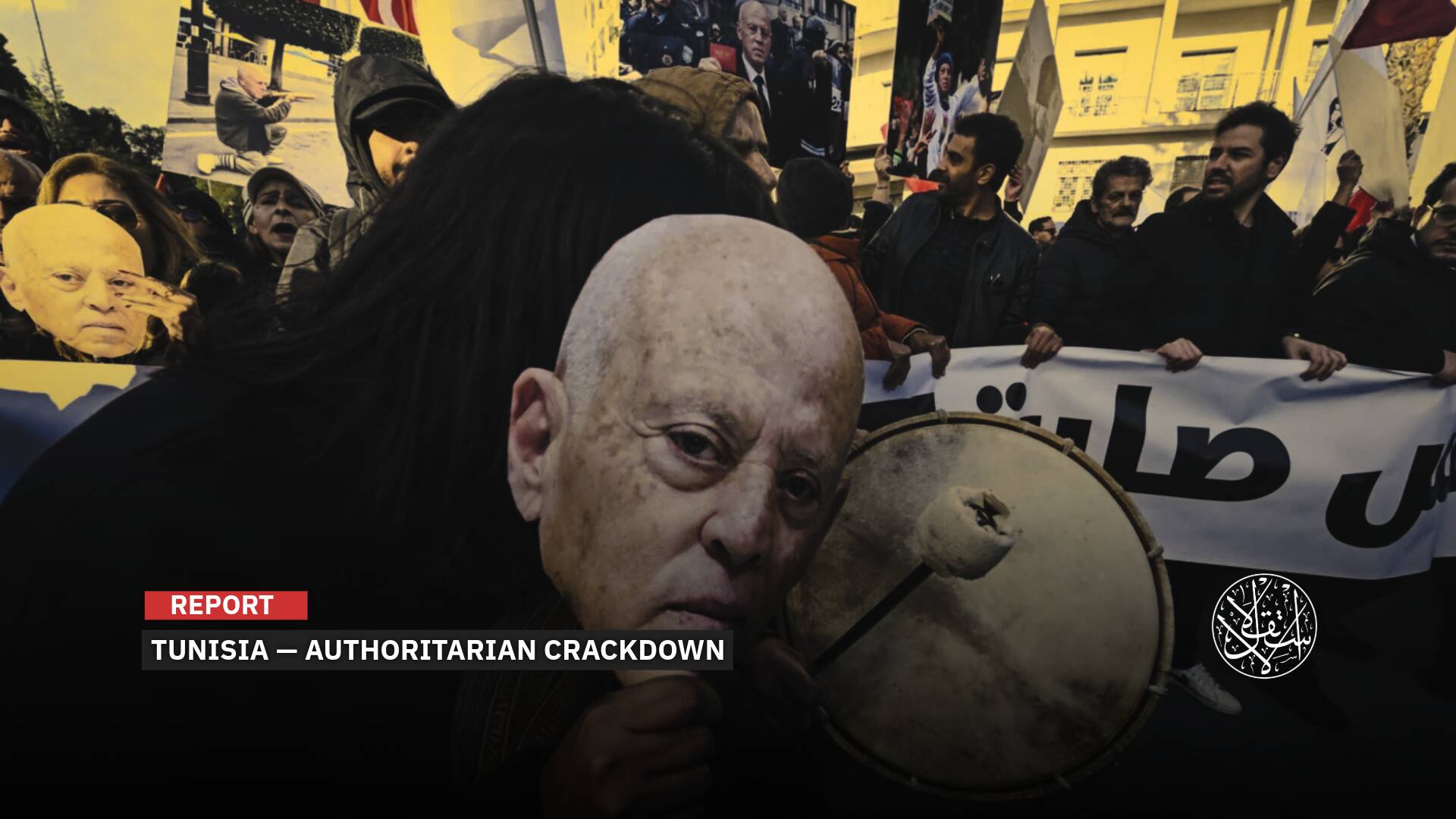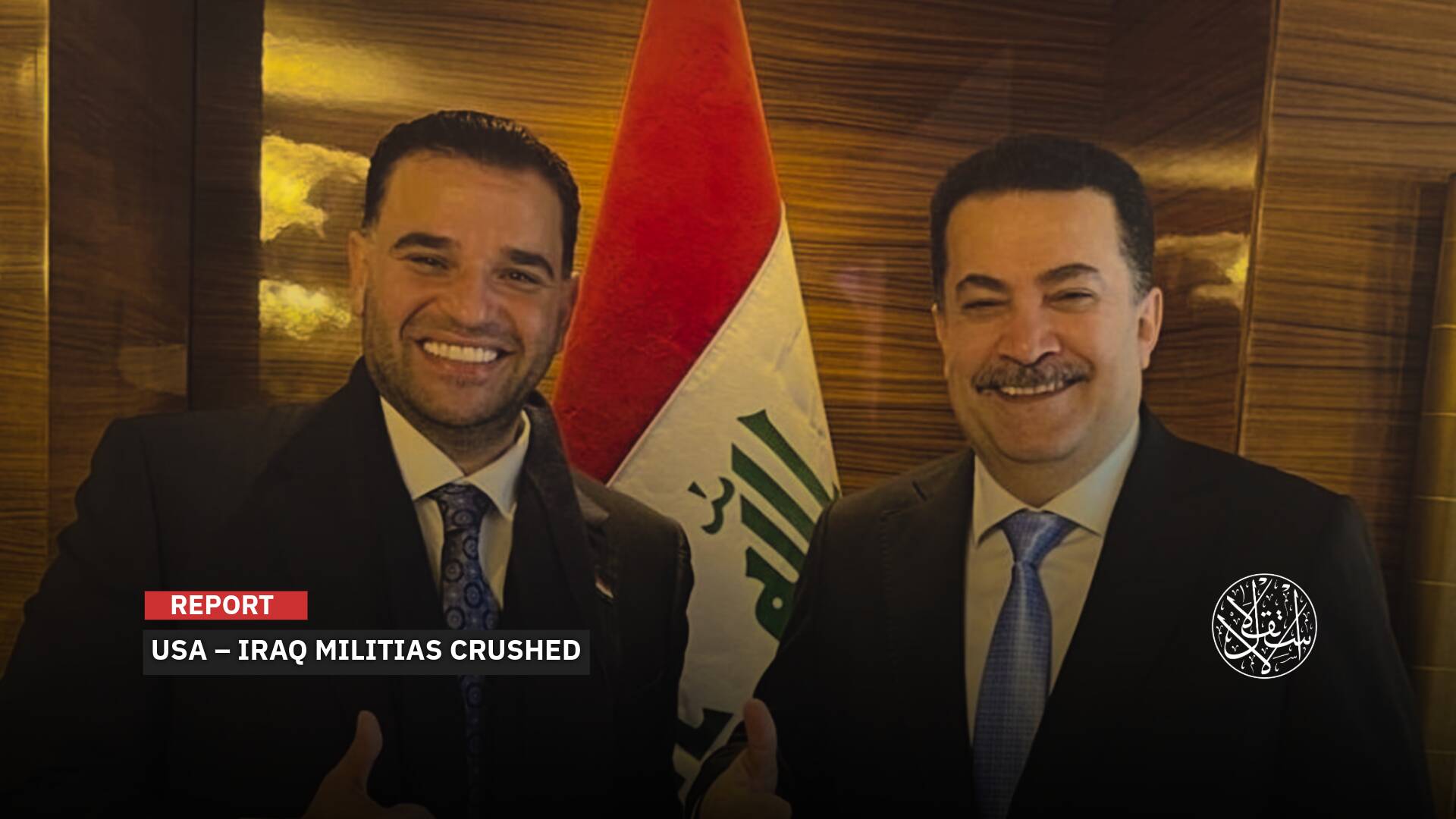‘Greater Israel’: This Is How the Israeli Media and Officials Incite to Occupy Lebanon

“The concept of Greater Israel has been a controversial issue since the creation of so-called Israel in 1948.”
Israeli real estate companies are currently promoting new settlement construction projects in southern Lebanon, using social media platforms to broadcast ads targeting Israeli settlers, enticing them to buy homes in the promised land.
These ads come after systematic media campaigns justifying the Israeli military aggression on Lebanon, as reported in an article published by The Jerusalem Post, under the title ‘Is Lebanon part of Israel's promised territory?’
After much outrage, the Israeli newspaper removed the article, which sparked heated reactions on social media, with many accusing the newspaper of promoting expansionist ideas under the guise of religious justification.
As these events unfold, public debate has intensified, with critics highlighting how the article’s religious framing echoes past rhetoric used to justify territorial annexation.
Many have linked the incident to the broader context of the Israeli-Lebanese conflict, particularly Israel’s historical occupation of southern Lebanon.
‘Greater Israel’
On September 25, 2024, The Jerusalem Post published a controversial article that addressed the Zionist vision and ideology towards neighboring countries within the framework of the so-called “Greater Israel” project.

The controversial notion of “Greater Israel” is a term associated with far-right elements of Israeli politics, which claim historical and religious rights to those territories.
It is noteworthy that the map of “Greater Israel” includes the currently occupied Palestinian territories, the West Bank and Gaza, in addition to Egypt, Lebanon, Syria, Jordan, Iraq, and even a small part of Turkiye. According to Jewish doctrine, these territories must be invaded and seized.
This interpretation has been a controversial issue since the creation of the so-called “Israel” in 1948. Zionists and their supporters view it as the fulfillment of a religious prophecy, while critics condemn it as a justification for territorial expansion at the expense of neighboring countries and their sovereignty.
Although this idea is largely symbolic and not part of mainstream Israeli policy, it has resurfaced at times, raising concerns about Israeli regional ambitions.
A similar controversy arose recently when Israeli Finance Minister Bezalel Smotrich presented a map suggesting that Israel's borders should extend much beyond their current lines, exacerbating tensions.
Amid the escalation of the Israeli forces' brutal aggression on the Gaza Strip and southern Lebanon, and with Israeli Prime Minister Benjamin Netanyahu's repeated statements about “Greater Israel” and the New Middle East, it has become clear that the ambitions of this right-wing leader go beyond the boundaries of traditional conflicts in the region.
The increasing Israeli aggression on southern Lebanon, and the qualitative attacks that recently targeted the southern suburb, show that Netanyahu's plan is accelerating to achieve his expansionist vision, relying on his alliance with extremist religious Zionist forces and the unlimited support of the current U.S. administration.
Expansionist Vision
While the Israeli army continues its bombardment of Lebanon, an extremist Israeli settler group that wants to annex south Lebanon and establish Israeli settlements there has begun advertising for properties.
“It’s time for a house in Lebanon!,” the ads read.
The ads, published by uritsafon.com, show luxury homes in southern Lebanon, and mention high-quality services, swimming pools, and spacious living spaces.
This practice is not new, as “Israel” has previously used it in the Palestinian territories, where settlements have continued to expand despite international condemnation.
The fact that these ads are directed only at reserve officers indicates that “Israel” is trying to attract them and create a personal goal for them to fight in southern Lebanon.
The use of real estate is a political tool to create facts on the ground that will make any future negotiations regarding sovereignty over these territories difficult, reflecting a clear expansionist colonial mentality.
Observers believe that these media, real estate, and military campaigns work together to transform the Israeli occupation into a fait accompli and present it to the world and the Israelis themselves as a civilized necessity.
In a related context, the Israeli settlement movement in Southern Lebanon published a map bearing the new Hebrew names of the settlements in southern Lebanon, based on the current names of Lebanese cities and villages.
The movement seeks to promote the seizure of southern Lebanon, ethnic cleansing, and settlement by Israeli Jews, just as Israel did in Gaza and the occupied West Bank.
It claims a Biblical justification for the conquest of Lebanon in the book of Deuteronomy chapter 3, verse 25.
Uri Tzafon (Awaken North), an Israeli group demanding the conquest and Jewish settlement of Lebanon, recently sent drones and balloons into southern Lebanon in June carrying eviction notices to the region's residents.
“The announcements make clear to the residents that they are in the Land of Israel, which belongs to the Jewish people, and that they are required to evacuate immediately,” the group said in a statement.
Like Uri Tzafon, Gush Emunim was a fringe group created in 1974. Fifty years later, West Bank settlers are a powerful political force in “Israel”.
In November 2023, as the bombing and invasion of Gaza was well underway, Captain Amichai Friedman, the rabbi of the Nahal brigade's military base, stated Israel's intention to not only take Gaza but Lebanon as well.
Historical Ambitions
Recently, a map of “Greater Israel” on an Israeli soldier’s uniform has also sparked widespread controversy.
The map displayed on the soldier included not only “Israel”, but also vast areas of Jordan, Palestine, Lebanon, and parts of Syria, Iraq, and Egypt.
Activists commented on the image, considering that the map reflects an expansionist agenda reminiscent of historical ambitions. Comparisons were drawn with Nazi Germany’s concept of ‘Lebensraum’, or living space for the chosen race.
Activists said that the concept of “Greater Israel” is rooted in some interpretations of Zionist ideology, which asserts that the Promised Land in the Bible extends from the Nile River in Egypt to the Euphrates River in Iraq.
It is worth noting that this doctrine is not a new one, but is deeply rooted among Israeli officials.
In 1982, Israeli journalist Oded Yinon published a document entitled ‘The Zionist Plan for Greater Israel by Dividing the Middle East’, which is based on the vision of the founder of Zionism, Theodor Herzl.
It is noteworthy that “Israel” had succeeded during its previous rounds with the Arab countries in achieving part of this project by seizing Sinai and then withdrawing from it in exchange for recognition of its legitimacy, in addition to occupying the Lebanese Shebaa Farms and part of the Syrian Golan, and annexing areas of the Jordan Valley.
Today, “Israel “is also trying to complete its expansionist plan by seeking to annex areas in the occupied West Bank and Gaza, even if this contradicts international laws.
Some experts believe that “Israel” is trying to exploit the current crisis conditions in the region to implement its current project in Lebanon, and that the recent intensive bombing operations of Lebanese territory are nothing but a prelude to a ground invasion of this country.
In turn, political analyst Ahmad Ez Aldeen explained in a statement to Al-Estiklal that “Netanyahu had previously announced his rejection of the establishment of a Palestinian state and his rejection of withdrawing from Gaza, which indicates his quest to achieve the new Middle East.”
He pointed out that “the Israeli lobby has been pressuring decision-makers in the United States in recent years to work hard to achieve the dream of Greater Israel extending from the Nile to the Euphrates.”
Just as “Israel” uses bombs and missiles to destroy the Lebanese infrastructure and kill civilians, it employs real estate ads as a tool to change the demographic reality in Lebanon in a way that serves the Israeli Zionist project, according to the political analyst.
He also stressed that “the Israeli media promotes this strategy as a natural extension of their alleged historical right, which contributes to justifying any Israeli violations against the peoples of the region.”
Sources
- Did The Jerusalem Post delete article claiming 'God gave Israel Lebanon'?
- Is Lebanon Israeli Settlers’ Next Frontier? – Analysis
- Israeli settlers publish map of south Lebanon with Hebrew names
- IDF soldier wears ‘Greater Israel’ badge, sparking angry reaction
- It's time for a home in Lebanon! [Hebrew]
- “Greater Israel”: The Zionist Plan for the Middle East








